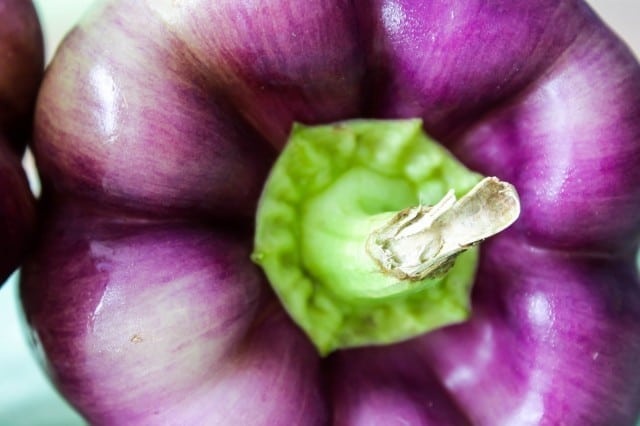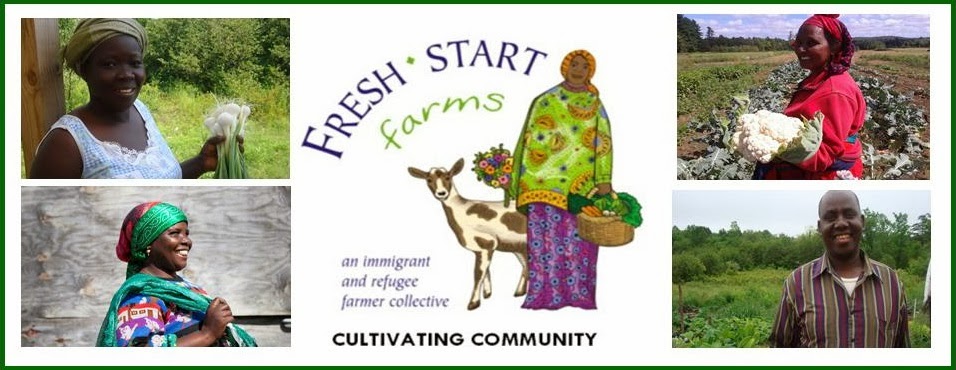 |
Farm Manager Sarah Marshall pauses during high tunnel
construction (Spring '14).
|
The University of Maine has supported and continues to advocate for an expansion of season extension farms, and the USDA's NRCS (Natural Resource Conservation Service) has enabled numerous growers in Maine and around the country to do the same through grant-funded, season extension infrastructure. From a macro perspective, the increase of season extension growing means improved state self-sufficiency - basically Maine is able to grow more of the food its residents eat.
 |
Hussein, Holly, and Sarah Bostick install the high
tunnel's front plastic (Spring '14)
|
The high tunnel has and will continue to enable these producers to sell to more markets, where food doesn't just need to taste farm fresh, but also needs to look beautiful enough to impress chefs, food service directors, and consumers specialty markets like Rosemont and Forage.
| Hungarian hot wax (above) and purple bell pepper (below) |
Long-growing crops need hot weather and are often prone to blight and pest damage, (especially when farmers grow chemical free, as we do at Fresh Start Farms). But season extension is helping with this as well.
 The high tunnel enables Fresh Start Farms to start growing tomatoes earlier in the season, as well as protect them from some of the issues that often plague those coming straight out of farmers' fields. This high tunnel is also what has allowed Habiba Noor to crank out some of the shiniest purple and green bell peppers, and spicy Hungarian hot wax peppers I have ever seen!
The high tunnel enables Fresh Start Farms to start growing tomatoes earlier in the season, as well as protect them from some of the issues that often plague those coming straight out of farmers' fields. This high tunnel is also what has allowed Habiba Noor to crank out some of the shiniest purple and green bell peppers, and spicy Hungarian hot wax peppers I have ever seen!Just some food for thought - something to consider and appreciate when buying, ordering, or eating local food!
Speaking of eating local food, please join us for our final Twilight Dinner event of the summer THIS THURSDAY. Here are the full details:
Our final Twilight Dinner:
August 28th at 6:30pm - Twilight Dinner at Turkey Hill Farm in Cape Elizabeth, chef Christina Seeley with Emmet Helrich of Local 188 in Portland. Pairings by Bunker Brewing Company. BYOB optional. Sponsor: Maine Brew Bus - Click HERE for tickets!
Complete Twilight Dinner info. can be found at our website:http://cultivatingcommunity.org/calendar/twilight-dinners.htmlAugust 28th at 6:30pm - Twilight Dinner at Turkey Hill Farm in Cape Elizabeth, chef Christina Seeley with Emmet Helrich of Local 188 in Portland. Pairings by Bunker Brewing Company. BYOB optional. Sponsor: Maine Brew Bus - Click HERE for tickets!






